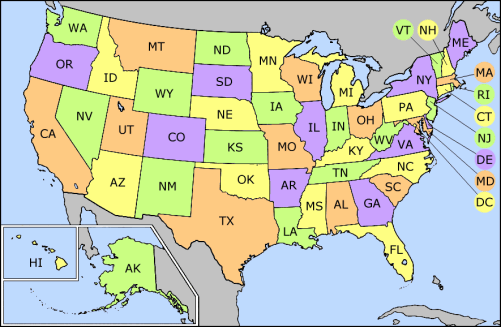| 正面 | 845.state 英 [steɪt]美 [stet]     |
|---|---|
| 背面 |      释义: 脑里记n. 国家;州;情形vt. 规定;声明;陈述adj. 国家的;州的;正式的n. (State)人名;(罗、瑞典)斯塔特;(英)斯泰特 例句: 1. Kaspar had spoken know-ledgeably about the state of agriculture in Europe.卡斯帕对欧洲农业状况发表了一番颇有见地的见解。 state 状态,状况,情况,陈述,说明,规定来自拉丁语 status,位置,地方,站立姿势,情况,状况,公共秩序,过去分词名词格于 stare, 站立,来自 PIE*sta,站立,词源同 stand.引申词义陈述,说明,规定等。 statestate: [13] State comes, partly via Old French estat (source of English estate), from Latin status ‘way of standing, condition, position’, which was formed from the same base as stāre ‘stand’ (a distant relative of English stand). The word’s political sense, ‘body politic’, first recorded in the 16th century, comes from Latin expressions such as status rei publicae ‘condition of the republic’ and status civitatis ‘condition of the body politic’.The verb state originally meant ‘put, place’; its modern meaning ‘declare’ arose from the notion of ‘placing’ something on record, setting it out in detail. English borrowed status itself in the 17th century.=> estate, stand, station, statistic, statue; statutestate (n.1)c. 1200, "circumstances, position in society, temporary attributes of a person or thing, conditions," from Old French estat "position, condition; status, stature, station," and directly from Latin status "a station, position, place; way of standing, posture; order, arrangement, condition," figuratively "standing, rank; public order, community organization," noun of action from past participle stem of stare "to stand" from PIE root *sta- "to stand" (see stet). Some Middle English senses are via Old French estat (French état; see estate). The Latin word was adopted into other modern Germanic languages (German, Dutch staat) but chiefly in the political senses only. Meaning "physical condition as regards form or structure" is attested from late 13c. Meaning "mental or emotional condition" is attested from 1530s (phrase state of mind first attested 1749); colloquial sense of "agitated or perturbed state" is from 1837. He [the President] shall from time to time give to the Congress Information of the State of the Union, and recommend to their Consideration such Measures as he shall judge necessary and expedient. [U.S. Constitution, Article II, Section iii] state (v.)1590s, "to set in a position," from state (n.1); the sense of "declare in words" is first attested 1640s, from the notion of "placing" something on the record. Related: Stated; stating.state (n.2)"political organization of a country, supreme civil power, government," c. 1300, from special use of state (n.1); this sense grew out of the meaning "condition of a country" with regard to government, prosperity, etc. (late 13c.), from Latin phrases such as status rei publicæ "condition (or existence) of the republic." The sense of "a semi-independent political entity under a federal authority, one of the bodies politic which together make up a federal republic" is from 1774. The British North American colonies occasionally were called states as far back as 1630s; the States has been short for "the United States of America" since 1777; also of the Netherlands. State rights in U.S. political sense is attested from 1798; form states rights is first recorded 1858. Church and state have been contrasted from 1580s. State-socialism attested from 1850." |